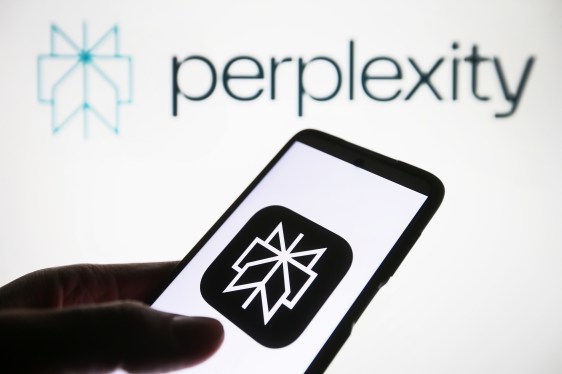In August, a U.S. court ruled that Google has a search monopoly, and while Google appeals, the Justice Department is figuring out what kind of potential penalties to impose – like breaking off Chrome.
Potential Penalties for Google’s Search Monopoly
As part of this process, the DOJ wants to call on a specific witness, according to a recent court filing: Dmitry Shevelenko, chief business officer of Perplexity, an AI search provider most recently valued at $9 billion, per Reuters. Perplexity and other generative AI tools like OpenAI’s ChatGPT Search have emerged as a potential replacement for searching the internet, as they can offer direct answers to complicated queries (albeit, sometimes with made-up or inaccurate information). Google has responded to the threat with its own AI search tools, such as AI Overviews, which provide AI-generated answers above search results.
DOJ Wants Information from Perplexity
The DOJ wants to ask Shevelenko about ‘generative AI’s relationship with Search Access Points, distribution, barriers to entry and expansion, and data sharing.’ ‘Search access points’ is a term the DOJ uses to describe things like Google Chrome – places where people go to search the internet. While the filing doesn’t spell out exactly why the DOJ wants to ask Perplexity about these topics, it could help its argument that Google monopolizes the search business and closes out potential competitors, and thus deserves stronger penalties.
Perplexity Caught in Middle of Dispute
TechCrunch asked Perplexity whether it has agreed to have its executive testify and for its thoughts on the antitrust case. Perplexity didn’t respond immediately to a request for comment, and neither did Google. Perplexity is effectively caught in the middle of the dispute, as both sides want information from it that could help their cases. Google subpoenaed Perplexity in October for company documents to make its own case that it has viable competition in the search field. (Google subpoenaed Microsoft and OpenAI as well.) However, Perplexity has yet to provide ‘a single document’ to Google as of December 11, the tech giant lamented in a court filing, claiming that there is ‘no conceivable justification for further delay’ after two months of waiting.
Perplexity’s Response
For its part, Perplexity says in the filing that it has already agreed to fulfill 12 out of Google’s 14 document requests but is ‘still evaluating the burden associated with collecting such a potentially expansive universe of documents.’ Perplexity also says that while it has agreed to provide copies of licensing agreements ‘related to AI training,’ Google wants all of Perplexity’s licensing agreements and that it has asked Google to ‘meet and confer’ about this.
Background on the Dispute
This antitrust case against Google is one of several ongoing lawsuits in various jurisdictions. In Europe, the European Commission has been investigating Google’s business practices for years, including its dominance in search advertising and the way it promotes its own services over those of competitors.
Implications of a Potential Breakup of Google
A breakup of Google could have significant implications for the tech industry as a whole. It would likely involve separating off Chrome, Android, and other popular Google products into separate companies, potentially disrupting the ecosystem that has developed around these services.
Generative AI’s Relationship with Search
The DOJ wants to ask Shevelenko about ‘generative AI’s relationship with Search Access Points, distribution, barriers to entry and expansion, and data sharing.’ But what exactly is generative AI? And how does it relate to search?
What is Generative AI?
Generative AI refers to a type of artificial intelligence that can create new content based on a set of inputs. This could be anything from generating text or images to creating music or videos. In the context of search, generative AI is being used to provide direct answers to complicated queries.
How Does Generative AI Relate to Search?
Generative AI has emerged as a potential replacement for traditional search engines like Google. Instead of returning a list of links to relevant websites, generative AI can provide direct answers to users’ questions. This could potentially disrupt the way people use the internet and change the nature of search.
Benefits and Risks of Generative AI
Generative AI has several benefits, including the ability to provide more accurate and personalized results. However, it also raises concerns about bias, accuracy, and the potential for misinformation.
Potential Impact on Google’s Business Model
If the DOJ is successful in its case against Google, it could potentially disrupt Google’s business model. A breakup of Google would likely involve separating off Chrome, Android, and other popular Google products into separate companies, potentially disrupting the ecosystem that has developed around these services.
Potential Impact on Users
A breakup of Google could also have significant implications for users. It could lead to a more fragmented internet, with multiple competing search engines vying for market share. This could make it harder for users to find what they’re looking for and potentially increase costs for developers who rely on Google’s services.
Conclusion
The antitrust case against Google is ongoing, but its implications are already being felt across the tech industry. A potential breakup of Google would likely have significant consequences for the ecosystem that has developed around its services and could lead to a more fragmented internet.
Timeline of Events
- August: U.S. court rules that Google has a search monopoly.
- October: Google subpoenaed Perplexity for company documents.
- December 11: Perplexity fails to provide any documents to Google despite repeated requests.
This is a developing story, and we will continue to update this article as more information becomes available.

